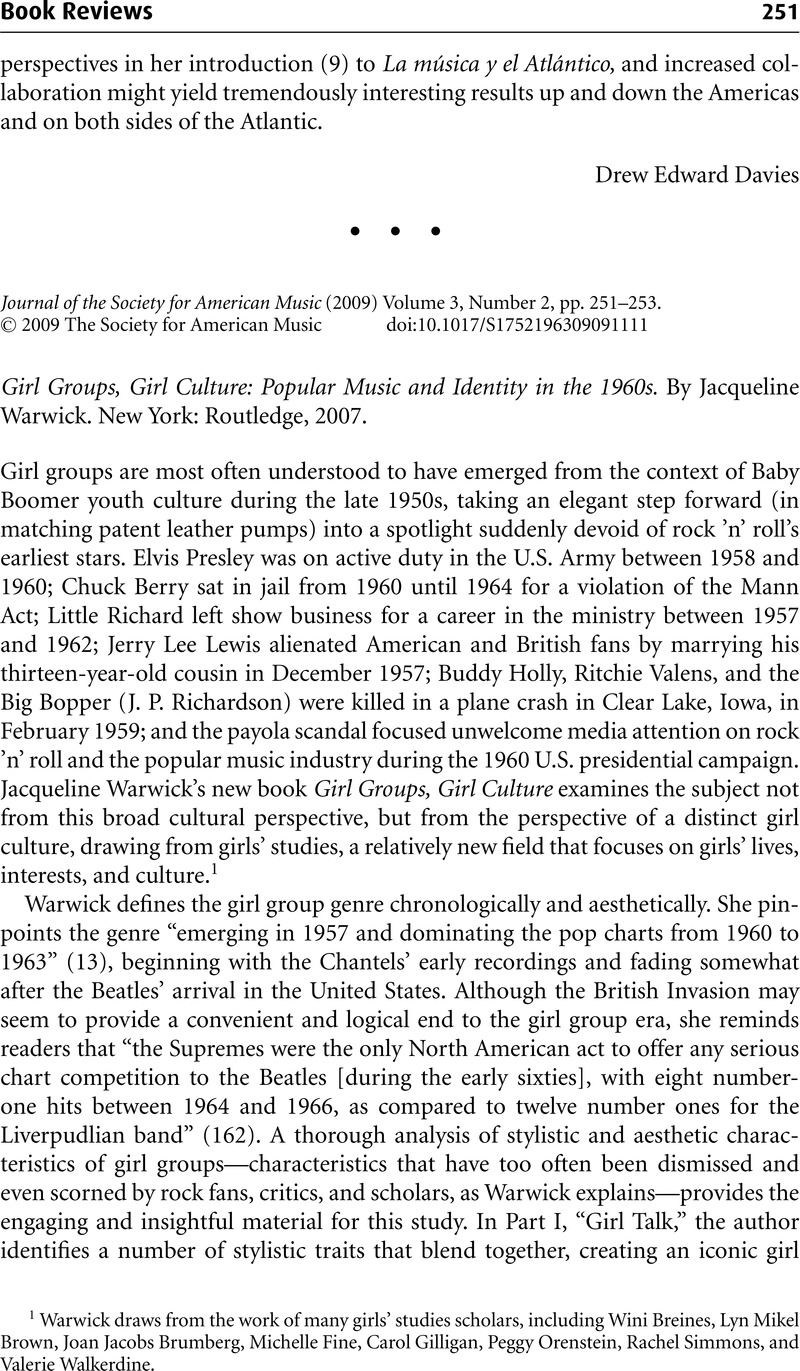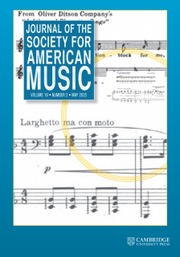No CrossRef data available.
Article contents
Girl Groups, Girl Culture: Popular Music and Identity in the 1960s. By Jacqueline Warwick. New York: Routledge, 2007.
Published online by Cambridge University Press: 01 May 2009
Abstract

- Type
- Book Review
- Information
- Copyright
- Copyright © The Society for American Music 2009
References
1 Warwick draws from the work of many girls' studies scholars, including Wini Breines, Lyn Mikel Brown, Joan Jacobs Brumberg, Michelle Fine, Carol Gilligan, Peggy Orenstein, Rachel Simmons, and Valerie Walkerdine.
2 Ronnie Bennet Spector, former member of the Ronettes, and session singer Darlene Love sued Phil Spector for breach of contract, loss of earnings, and ownership of their original recordings in the amount of $10 million. See Sharon Krum, “Ready, Girls?” Manchester Guardian, 13 July 1998, 6.
3 Estimated median age at first marriage, by sex: 1890 to the present, U.S. Census Bureau, internet release date 21 September 2006, http://www.census.gov/population/socdemo/hh-fam/ms2.pdf, accessed 28 July 2007.
4 Despite Warwick's claim in regard to the Chordettes' sound, the lyrics in many of their songs, including “Lollipop” (1958) and “Teenage Goodnight” (1956), address youthful or adolescent themes commonly associated with girl group repertoire.




